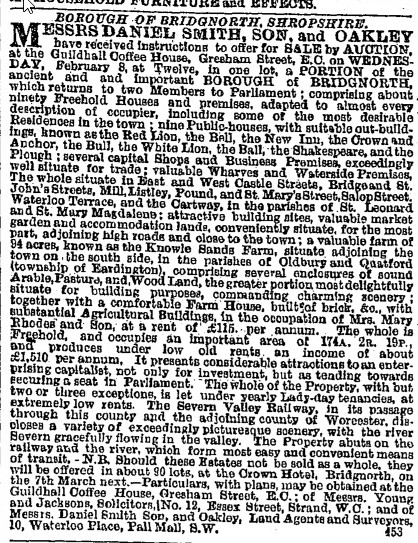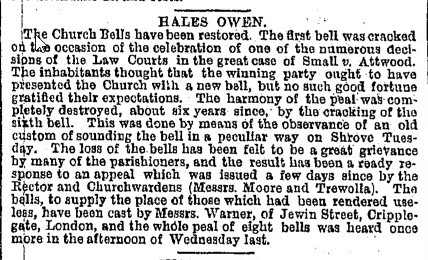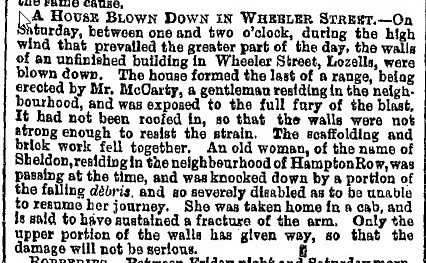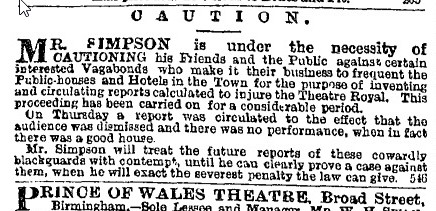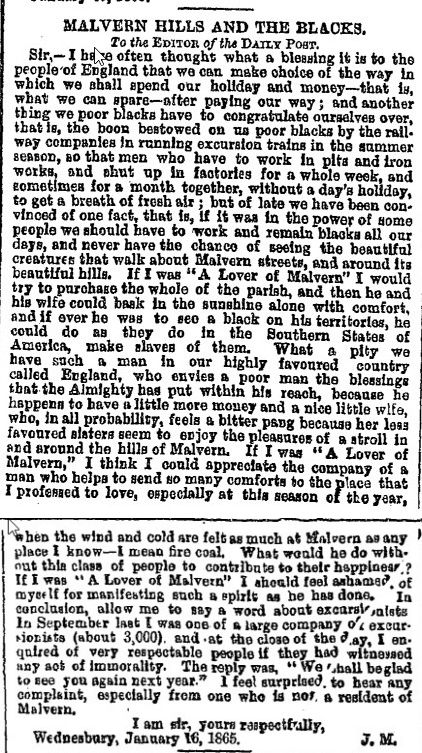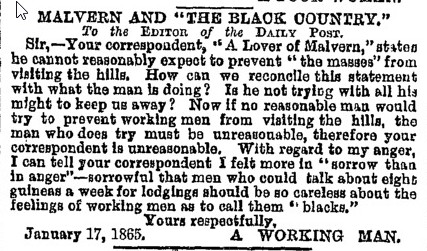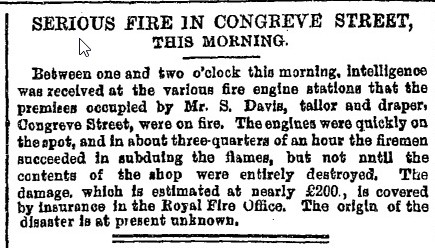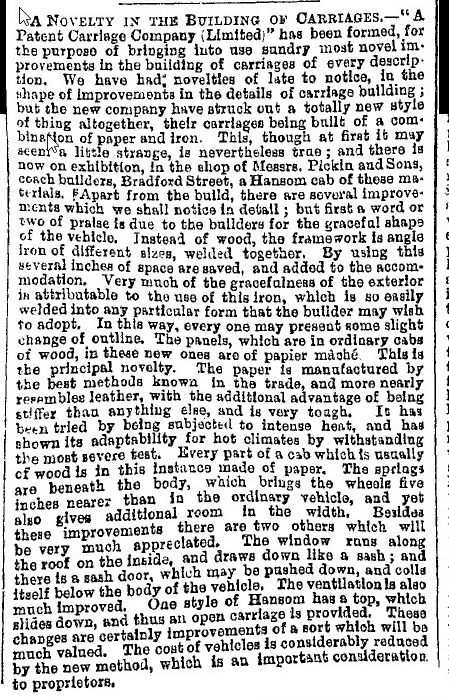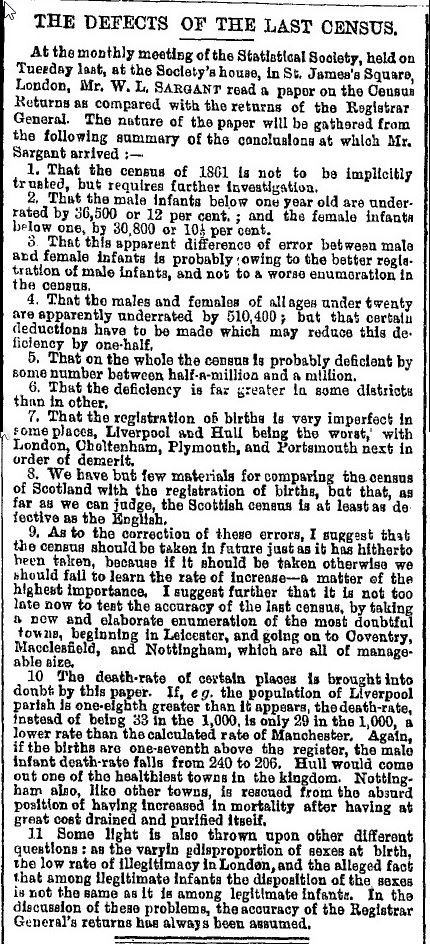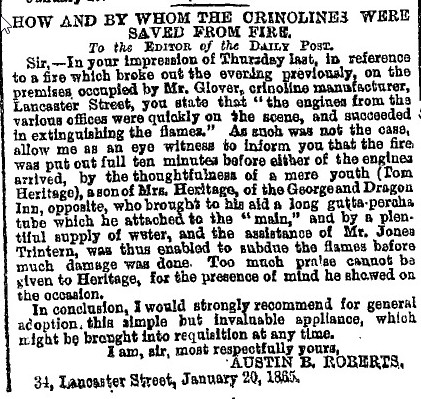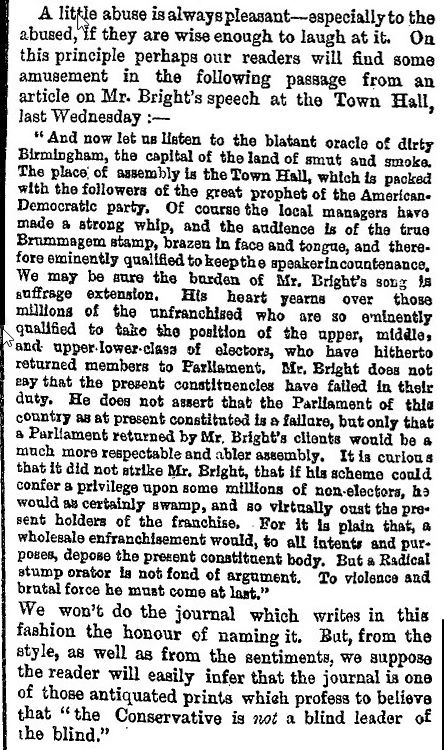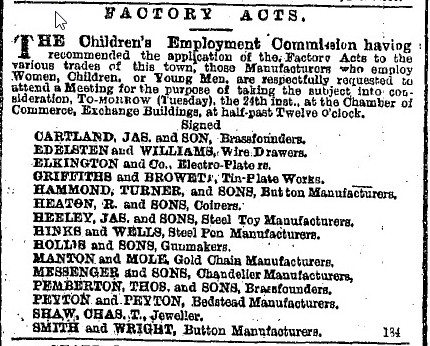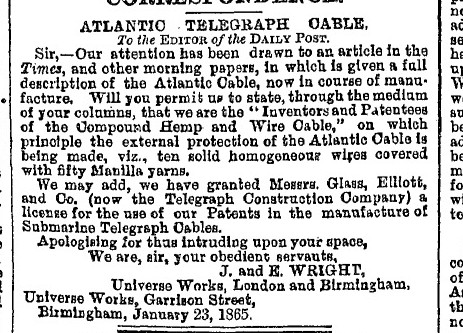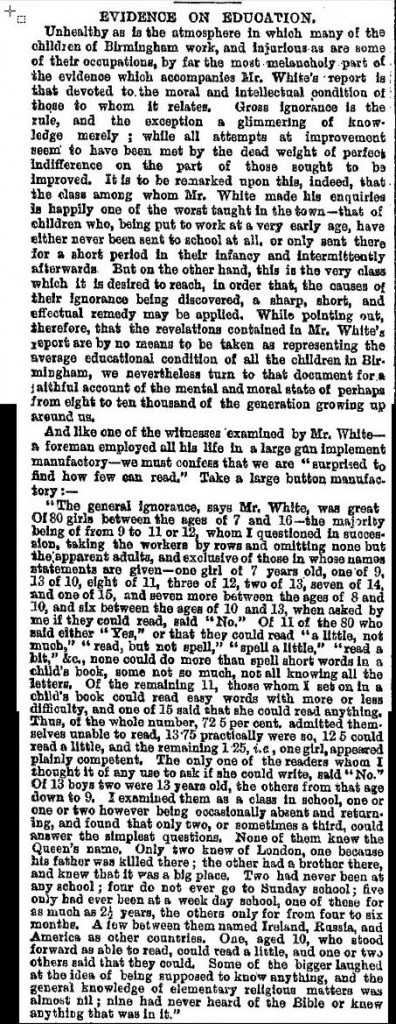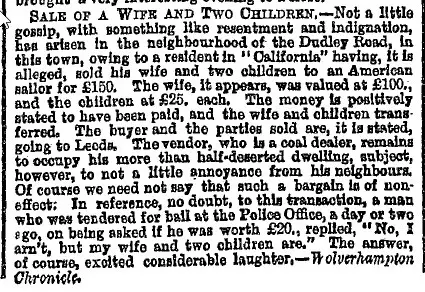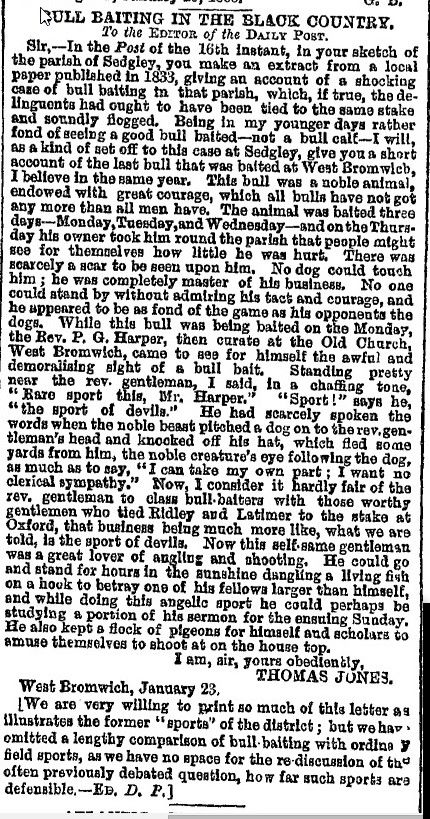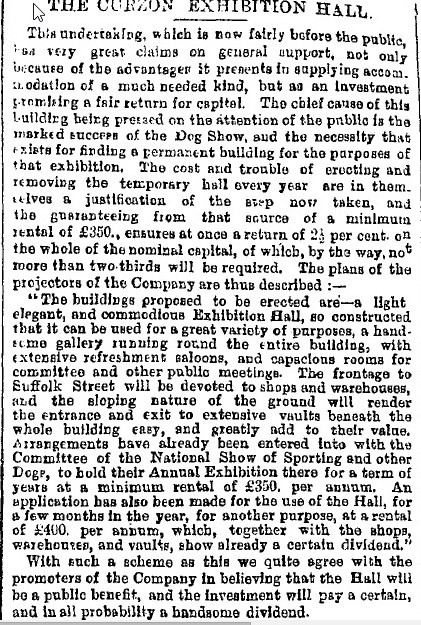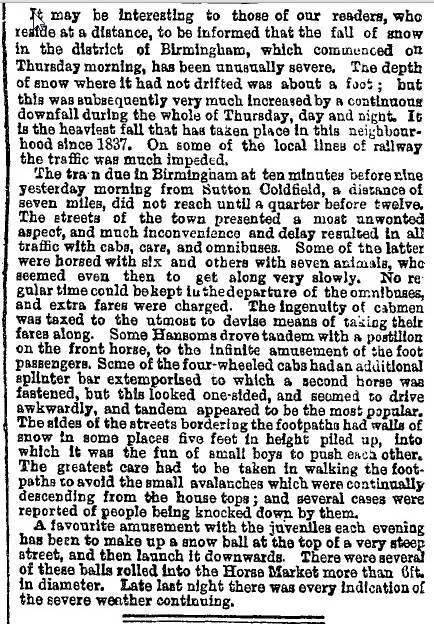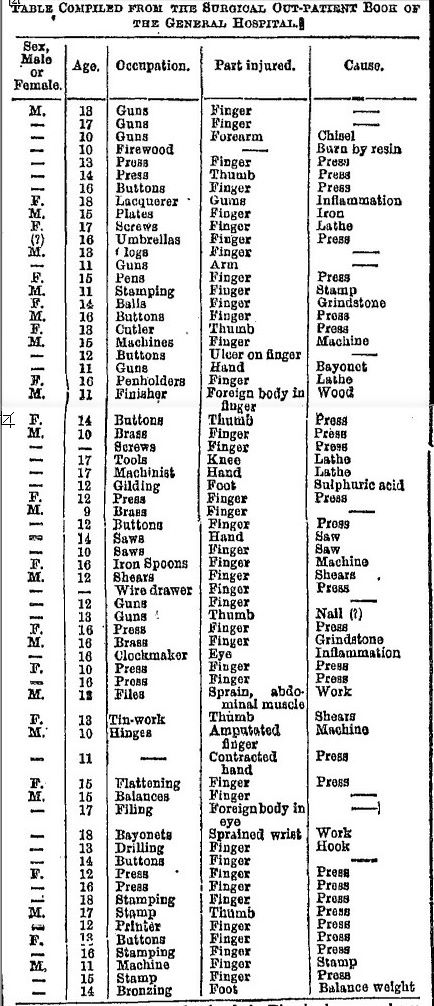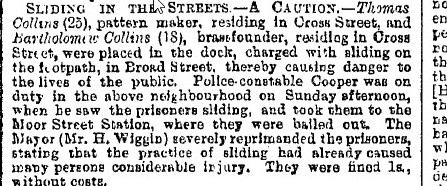Below is the Wikipedia description of the cable's construction. Unfortunately it broke several times while splicing it mid-Atlantic. The first attempt was in 1857 but it wasn't until July 1858 that the cable was successfully spliced. The correspondent in 1865 talks about the 'Atlantic cable being made', surely they were't replacing the original cable? Or was it still called Atlantic cable and being made for another purpose? Viv.
"The cable consisted of seven copper wires, each weighing 26 kg/km (107 pounds per nautical mile), covered with three coats of gutta-percha, weighing 64 kg/km (261 pounds per nautical mile), and wound with tarred hemp, over which a sheath of 18 strands, each of seven iron wires, was laid in a close spiral. It weighed nearly 550 kg/km (1.1 tons per nautical mile), was relatively flexible and was able to withstand a pull of several tens of kilonewtons (several tons). It was made jointly by two English firms – Glass, Elliot & Co., of Greenwich, and R. S. Newall & Co., of Birkenhead. Late in manufacturing it was discovered that the respective sections had been made with strands twisted in opposite directions. While the two sections proved a simple matter to join, this mistake subsequently became magnified in the public mind."
